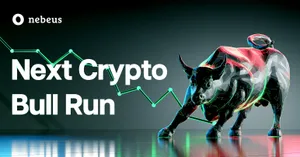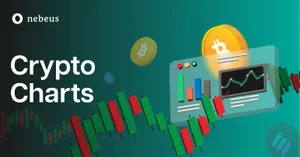Scalping trading is a popular and fast-paced strategy used in the cryptocurrency market. It stands out for its focus on quick, short-term trades, aiming to capitalize on small price changes in the highly volatile crypto environment.
This method is distinct from other trading strategies due to its intensity, frequency of trades, and reliance on technical analysis.
Scalpers, as practitioners of this strategy are known, operate under the principle that small, consistent profits can accumulate to substantial returns over time.
With the 24/7 nature of the crypto market, scalping becomes an around-the-clock activity, requiring a deep understanding of market trends, rapid decision-making, and often, the aid of automated trading systems.
This introductory guide will delve into the nuances of scalping in crypto, exploring its profitability, risks, optimal timings, and much more.
What does scalping mean in crypto
Scalping in cryptocurrency trading is a strategy that involves making multiple trades over short periods, aiming to profit from small price gaps and fluctuations.
This approach is quite intensive and requires traders to act quickly to take advantage of rapid market movements. Here's a more detailed look:
- Short-Term Trades: Scalping involves buying and selling cryptocurrencies within a very short timeframe, sometimes just minutes or even seconds.
- Small Profit Margins: The focus is on accumulating small gains that, over time and numerous trades, can add up to significant earnings.
- High Frequency: Scalpers execute a high volume of trades within a day. This requires constant market monitoring and rapid decision-making.
- Technical Analysis: Scalpers primarily rely on technical analysis, including reading charts and using trading indicators to predict short-term price movements.
- Leverage and Margin Trading: Some scalpers use leverage to amplify their trading capacity. However, this can increase both potential gains and risks.
- Automated Trading Systems: Due to the fast-paced nature of scalping, many traders use automated systems or trading bots to execute trades more efficiently and quickly than is possible manually.
Scalping in crypto is distinctive due to the market's high volatility and 24/7 operating hours, which can provide more opportunities (and challenges) compared to traditional markets like stocks or forex.
Is scalp trading profitable?
Scalp trading can be profitable, but its success largely depends on the trader's skill, strategy, and market conditions.
What are the key factors that influence the profitability of scalp trading in crypto?
- Market Volatility: The cryptocurrency market's volatility can create numerous opportunities for scalpers to profit from small price movements. However, this same volatility can also lead to significant losses.
- Trading Skills: Successful scalping requires a high level of skill in technical analysis, quick decision-making, and the ability to act rapidly on market changes. Experienced traders with a deep understanding of market indicators tend to fare better.
- Transaction Costs: Frequent trading leads to higher transaction costs (like trading fees and spreads), which can eat into profits. Scalpers need to find a balance where their profits outweigh these costs.
- Leverage: Using leverage can amplify profits, but it also increases the risks. Profitable scalping with leverage requires meticulous risk management.
- Time Commitment: Scalp trading is time-intensive. Traders need to continuously monitor the market, which can be mentally and physically taxing.
- Automated Tools: Utilizing trading bots and automated systems can increase efficiency and profitability, but they require fine-tuning and constant oversight.
- Consistency: Small profits from individual trades need to be consistent over time to accumulate into substantial earnings.
So, while scalp trading and a successful scalping strategy in the crypto market can be profitable, it is not without challenges and risks.
It requires a combination of market knowledge, strategic planning, and a high level of discipline.
How risky is scalping?
Scalping, by its very nature, is a high-risk legal trading strategy, especially in the volatile cryptocurrency market.
What are the risks of scalping trading in crypto?
- Market Volatility: Crypto markets are known for their extreme volatility, which can lead to rapid and unpredictable price movements. While this can create opportunities for profit, it also increases the risk of substantial losses, especially for inexperienced traders.
- Leverage Risk: Many scalpers use leverage to increase their trading capacity, which can amplify gains but also magnify losses. A small price movement in the wrong direction can lead to significant losses, potentially wiping out gains from several successful trades.
- High Frequency of Trades: The sheer volume of trades increases exposure to the market. A series of unsuccessful trades can accumulate substantial losses over a short period.
- Emotional Stress: The fast-paced nature of scalping can be emotionally draining and stressful. Emotional decision-making can lead to mistakes, such as failing to stick to a trading plan or taking excessive risks.
- Technical Risks: Scalping often relies on technical indicators and automated trading systems. Technical failures, such as software glitches, can result in lost opportunities or unintended trades.
- Costs and Fees: Frequent trading incurs higher transaction costs, which can erode profits. In some cases, the costs might outweigh the gains, especially in trades with very slim profit margins.
- Overtrading: There's a risk of overtrading, where a trader might make more trades than necessary or prudent, often driven by the urge to recover losses or the misconception that more trades equal more profit.
- Slippage: This refers to the difference between the expected price of a trade and the price at which the trade is actually executed. In fast-moving markets, slippage can lead to less favorable trade executions.
While scalping can offer opportunities for profit, it carries a high level of risk that requires careful management.
Successful scalpers often have significant experience, are able to make quick decisions under pressure, and have a solid risk management strategy in place.
What is the Best Time to scalp crypto?
Determining the best time to scalp crypto involves assessing market volatility, trading volume, and personal availability.
Scalpers look for periods of high market activity, as these offer more opportunities for quick profits.
In other words, it's all about timing.
The best scalping trading strategies take into consideration a number of things, including:
Market Volatility and Trading Volume:
The most lucrative times for scalping are often when the market is most volatile. This could be during major news announcements or when trading sessions overlap between different global markets, leading to increased trading volumes.
High liquidity during these periods results in tighter spreads, which is advantageous for scalping.
Time Zone Overlaps:
The 24/7 nature of the cryptocurrency market means that there are peak periods to consider.
For example, when European and North American markets are both active, there tends to be a surge in trading activity, creating ideal conditions for scalping.
Impact of News and Events:
Economic events and significant news can cause substantial market movements. Being aware of scheduled events through an economic calendar can help scalpers capitalize on the resultant volatility.
Market Trend Analysis:
Regularly analyzing market indicators, price trends, and historical data is crucial in identifying opportune moments for scalping.
Successful scalpers stay attuned to market sentiments and adjust their strategies accordingly.
Personal Availability:
Scalping requires continuous market monitoring and quick decision-making.
Therefore, it's important for scalpers to operate during times that align with their personal schedules and when they can dedicate their full attention to trading.
While there are general guidelines on when to scalp, the optimal timing also hinges on individual circumstances and market dynamics.
Scalpers need to be flexible and responsive to changing market conditions to capitalize on the best opportunities.
How much money do scalpers make?
The earnings of scalpers in cryptocurrency trading, heavily influenced by their ability to navigate bid prices and interact with market makers, vary widely based on several factors.
Unlike traditional forms of investing, where returns can often be somewhat predictable, scalping in the crypto market is highly dynamic and uncertain.
Given these variables, it's challenging to pin down an exact figure for how much scalpers make. Some might make modest profits consistently, while others might achieve significant gains or incur losses.
Scalping requires a balance of strategy, discipline, and market knowledge, and even then, there are no guaranteed profits in the highly speculative crypto market.
How stock scalping works
Stock scalping, while sharing some similarities with crypto scalping, operates in a different context due to the distinct nature of the different trading environments.
For example, unlike the 24/7 crypto market, stock markets have specific trading hours, which shapes the scalping strategy.
Scalpers in the stock market typically operate during the most active trading hours, often at market open or close, when volatility is higher.
A few other differences between what these different scalp traders must consider are:
- Price Movements: stock prices are generally less volatile than cryptocurrency prices. As a result, stock scalpers might rely more on news, earnings reports, and other events that can create short-term market movements.
- Volume and Liquidity: High volume and liquidity are crucial for stock scalping, as they allow for quick entry and exit at desired prices.
- Technical Analysis: Stock scalpers use technical analysis and chart patterns to make trading decisions.
- Regulatory Considerations: In the stock market, there are specific regulations that can affect scalping.
- Trading Platforms: The choice of trading platform is important for stock scalpers, as they need fast execution and real-time data.
- Transaction Costs: These, including brokerage fees and commissions, play a significant role in the overall profitability of stock scalping.
These differences require distinct scalping strategies and considerations to be successful in stock scalping.
Pros & Cons of scalping trading strategy
Scalping as a trading strategy, whether in the stock or cryptocurrency markets, has its own set of advantages and disadvantages.
Understanding these can help traders decide if scalping aligns with their trading style, goals, and risk tolerance.
Pros of Scalping:
- Quick Profits: Scalping allows traders to potentially make profits in short periods, capitalizing on small price movements.
- Opportunities in Market Fluctuations: Due to its reliance on short-term trading, scalping can be profitable in both rising and falling markets.
- Limited Overnight Risk: Since positions are typically not held overnight, scalpers avoid the risk of significant market movements occurring outside of trading hours.
- High Volume of Trades: The high frequency of trades means more opportunities to profit, although each trade typically yields a small profit.
- Skill Improvement: Scalping can rapidly improve a trader’s market analysis and decision-making skills due to the fast-paced nature of the strategy.
Cons of Scalping:
- High Stress and Time Commitment: Scalping requires constant market monitoring and quick decision-making, which can be stressful and time-consuming.
- High Transaction Costs: Frequent trading leads to higher transaction costs, which can eat into profits.
- Risk of Significant Losses: While individual losses per trade might be small, the cumulative effect of multiple losing trades can be substantial.
- Requires Significant Skill: Successful scalping requires a good grasp of market analysis, and the ability to act quickly and decisively.
- Potential for Overtrading: Scalpers might risk overtrading, driven by the need to recover losses or the misconception that more trading always leads to more profit.
So, while scalping can offer the potential for quick profits and suits a fast-paced trading style, it demands a high level of dedication, discipline, and skill.
The strategy is not suitable for everyone, particularly those who cannot commit the necessary time or handle the associated stress and risk management.
So is scalping the best trading strategy?
Determining whether scalping strategies are the "best" depends on individual trader preferences, goals, skill level, and risk tolerance.
While scalping offers certain advantages, it also comes with its own set of challenges and is not universally suitable for all traders.
Traders should consider:
- Their personal circumstances
- Their trading goals,
- And the specific characteristics of the markets in which they are trading
when deciding if scalping is the right strategy for them.
Conclusion
In conclusion, scalping is a unique and intensive trading strategy that focuses on earning profits from small price changes in the market.
However, while scalping can offer the potential for quick, incremental profits, it is not without its challenges. Which means the suitability of scalping as a trading strategy varies greatly among individuals.
To figure out if scalping is the best trading strategy for you, you must consider a variety of factors, such as personal goals, trading style, and ability to manage the risks involved.
It's important for you to assess your own situation and capabilities before deciding to adopt scalping as your primary trading approach.
You can sign up for a Nebeus account to pay across the world with your Nebeus Crypto Card.
La inversión en criptoactivos no está regulada, puede no ser adecuada para inversores minoristas y se puede perder la totalidad del monto invertido.










